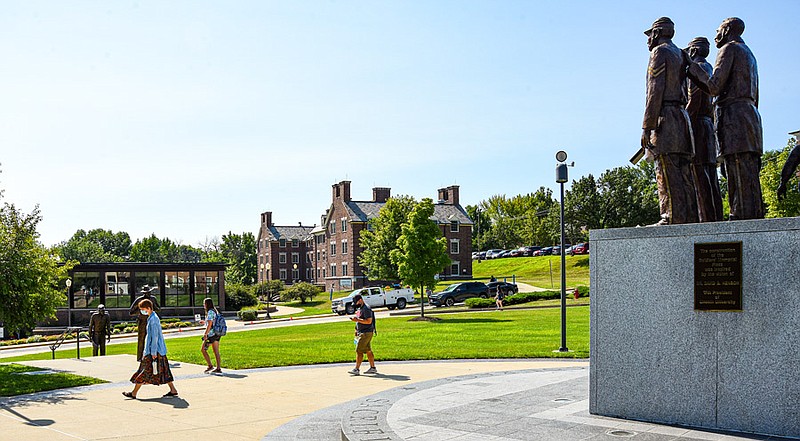Higher education administrators and state leaders will move beyond statistics to learn more about student experiences with college accessibility, affordability and equity in Missouri.
The Missouri Department of Higher Education and Workforce Development's third annual Equity in Missouri Higher Education Summit is 8:30 a.m.-noon today-Thursday and brings together state and national speakers to talk about the state of higher education, what kind of students are being served and how institutions can improve serving diverse populations and be more equitable.
This year's speakers include: Martha Snyder, senior director at HCM Strategists; Sarah Pingel, senior policy analyst with Education Commission of the States; Clarence Green, vice president of culture at Northwest Missouri State University; and Rolundus Rice, vice president of academic affairs at Rust College.
More than 370 people were registered for the summit as of Monday afternoon.
This is the first year the Equity Summit is a multi-day event. For the past two years, the summit took place during the course of an afternoon, with last year's being virtual as well.
The summit usually culminates in an equity report that compiles data surrounding what kind of people participate in Missouri's higher education system.
According to last year's report, college degree attainment rates for all races and ethnicities have increased since 2013, but students of color, particularly Black and Hispanic students, have attainment rates well below the state average.
"Though Black Missourians comprised 14 percent of the college-age population and 11.5 percent of post-secondary enrollments, they made up only 7.5 percent of completions," the 2020 report states. "This indicates there are systemic or other barriers that prevent Black students from completing at the same rate as their peers."
Unlike previous years, the 2021 equity report will be released as a series focused on anecdotal information from a survey completed by almost 10,000 college and university students.
The survey, conducted last fall, asked students about college affordability and access, including how affordable they perceived higher education to be and what struggles they might have had staying enrolled in school and completing a degree.
"We're really excited to have kind of the behind the scenes of the data," said Jessica Duren, assistant commissioner of MDHEWD's Office of Communications and Outreach. "We have this data, but we don't always hear the specific stories and what students are actually facing. This will be an extra layer to the conversation this year."
Duren said the previous summit reports and their general data on Missouri's higher education students are still available for participants and interested parties to access, but this year's data will be centered around the students that responded to the survey.
With participants sharing various perspectives and learning from each other, Duren said the summit has the potential to effect change around alleviating burdens for low-income students and shaping an inclusive and welcoming culture.
She said participants can then take what they learn to spark conversations and action in their own communities.
"We really just hope that this will be a productive conversation around how we can make a real difference in helping students access and complete education and training opportunities," Duren said.
She said the summit also helps the department support its vision of providing every Missourian with the skills and education needed for success.
"We really take that 'every Missourian' to heart," Duren said. "So we are looking at underserved populations, whether its district demographics, rural students, we have statistics on how different races are finishing, whether or not they are succeeding once they make it to higher education and how many of them actually have access to higher education - so it's just an important topic overall."

